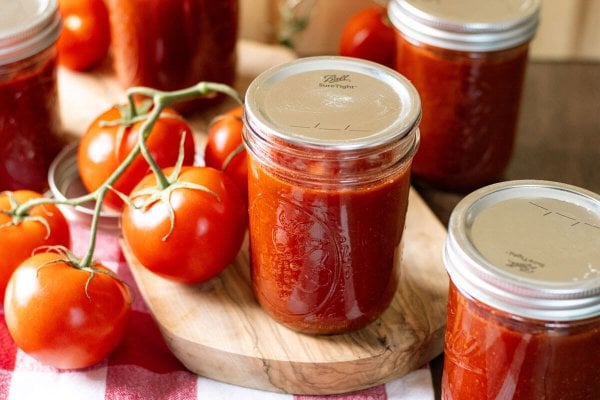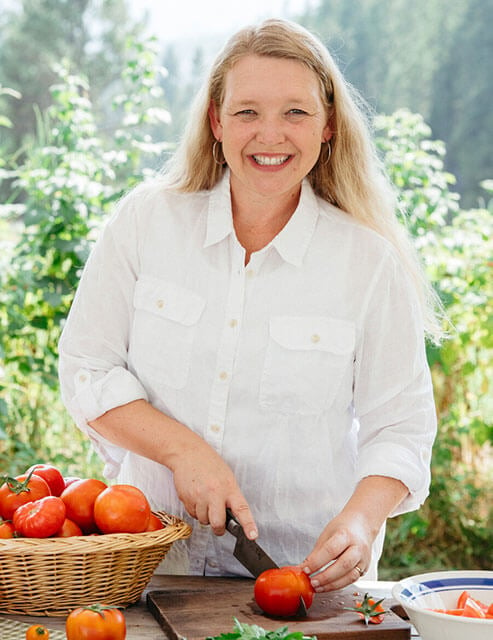Old-fashioned wisdom is really important to us as parents, and it has always served us very well. So, it’s no surprise that we draw on this wisdom for our family’s top ten parenting principles as well.

Learning to manage a homestead requires an intentional effort that, for us, has paid off in big dividends over the years.
In the past, I have shared my morning routine, how I plan morning chores for children, the importance of chore time for kids, and how we utilize the homestead as an educational tool when homeschooling our children.
These separate activities come together into a productive daily routine that allows us to work together as a family unit to accomplish what needs to be done.
There are times when we need to learn to pivot when things go wrong on the homestead, and there are those times we adjust to welcomed changes, like preparing for a new baby. Whatever comes our way, remaining flexible is the key to resilience and peace.
Though we would never consider ourselves parenting “experts,” we have raised (and are continuing to raise) quite a few children. Something we always like to remember is that our parenting styles should change with each child because each child is unique; however, these principles remain no matter what.
Training vs Discipline
Before we discuss our top parenting principles, it’s important to distinguish the difference between training and discipline. If we’re going to set a new expectation for a child, we must first train them.
The training process is complete when you know your child understands the rule or chore/job and understands there’s a consequence if/when the rule is broken or when the chore/job has not been completed properly. Disciplining a child who hasn’t been adequately trained isn’t fair to them and shouldn’t be something we, as parents, implement.

Our Top 10 Parenting Principles
These are the top ten parenting principles that we’ve implemented while raising all 13 of our children. Remember that following these principles consistently takes intentionality and practice. When we mess up, we follow number seven, are quick to apologize and get back on track.
- Slow down and let the kids work with you.
- Always tie strings of fellowship (see their hearts).
- Give them ownership as soon as possible.
- Set the pattern. Start early modeling the things that you want them always to do.
- Say what you mean and mean what you say.
- Require politeness and respect.
- Be quick to apologize when you are wrong.
- Model grace.
- Don’t expect your children to have more self-control than you have.
- You can’t expect what you don’t inspect.
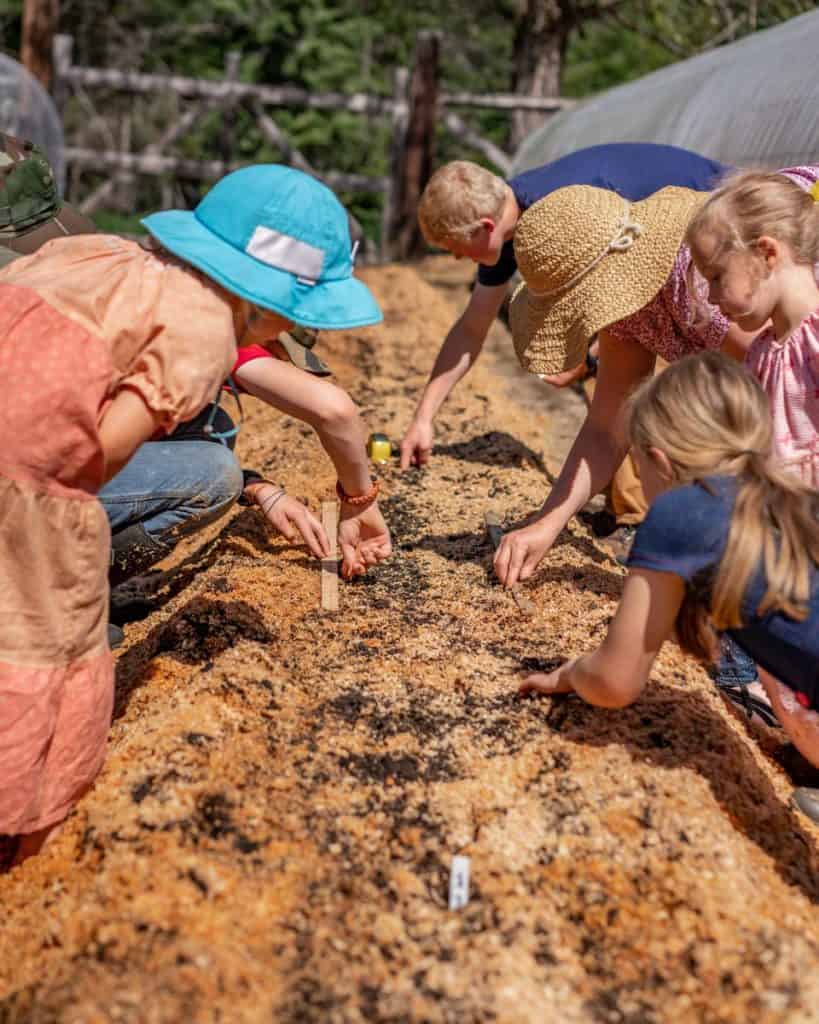
Slow Down & Let Kids Work With You
People often ask us, “How do you do it all?” Unfortunately, there’s no easy way to answer this question. Our life hasn’t always looked the way it does now. When we were a young family with very small children, we simply didn’t do as much as we do now.
Our advice to all young parents is to slow down and allow yourselves to do less. Don’t look at a family like ours and wish you could “do it all.” Remember that we’ve been layering in aspects of our daily lives over nearly two decades of implementation and practice (and trial and error).
However, one thing we’ve never regretted is bringing our children alongside us in whatever task we’re doing. Though this means tasks may take longer initially, it will pay back in dividends later on. Not only in the bond you create with your child, but in the training they’re receiving to one day manage the task themselves.
You’re instilling both wisdom and skill sets in your children. By training them now, you’ll have one less thing on your “to-do list” in the future.
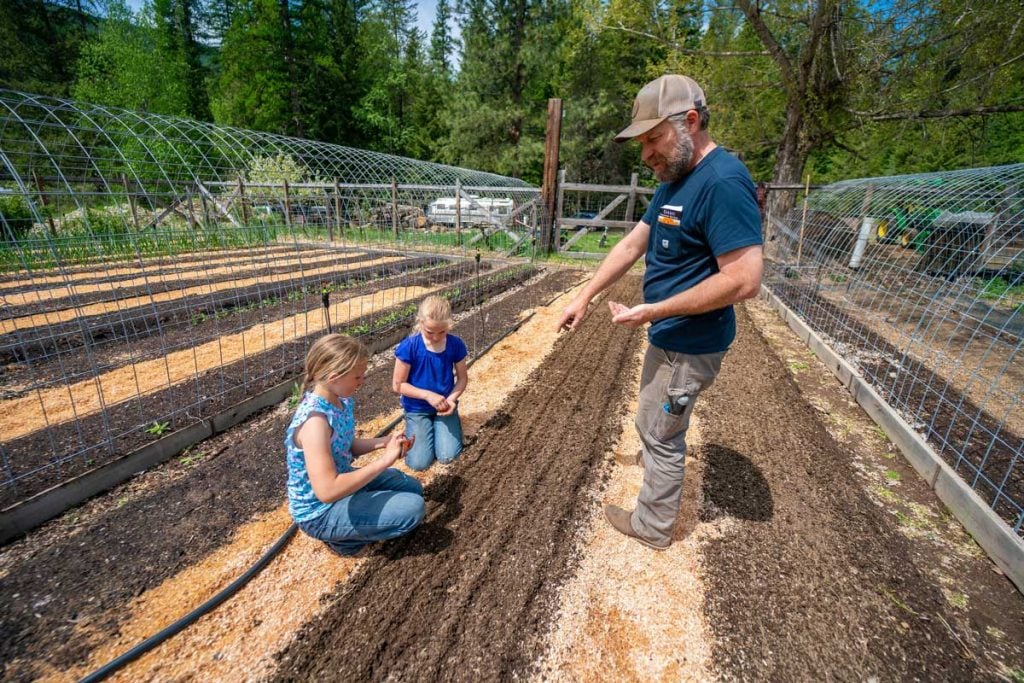
Always Tie Strings of Fellowship
It’s hard to remember as parents to build our relationships with our children first and foremost. Parenthood isn’t a lifetime of dictating. Yes, we’re helping raise future members of society, but their hearts are just as important, if not more. It’s important to remember to view them, day in and day out, as human beings who are individuals with big feelings and emotions.
In our house, we like to take the temperature of everyone’s attitude from time to time to ensure they’re happy and engaged. This also helps us recognize when they might be isolating themselves and looking sullen and make the connection with them to see why.
We always want to make sure we’re tying strings of fellowship on a relational level, listening to them and having conversations rather than always dictating to them.
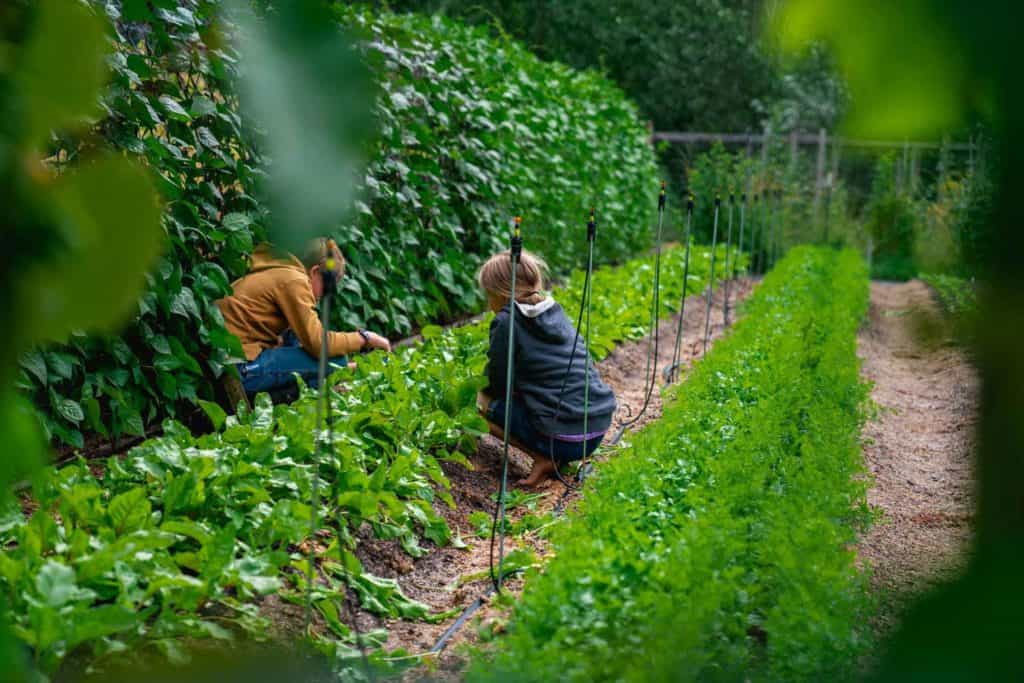
Give Them Ownership
It is important to give our children ownership at a young age. Kids want to do what their parents are doing. Remembering to slow down and allow them to get involved starts the process of training them for more responsibility in the future.
Yes, it will be messy, and the tasks will take longer initially! However, in the long run, you’re training your helpers. Once they become proficient with the task, you’ve reduced your overall workload.
As the children get older, we start giving them ownership over a project. This not only means they have control over how it gets done, but they have the responsibility of making sure the job is complete. If a task requires more people to be involved, this responsibility lies on their shoulders to properly communicate.
Ownership of a chore teaches so much responsibility and brings fulfillment to the child’s life. It makes them know they’re needed, and that’s also important so they develop a sense of purpose.

Set the Pattern
This is a principle that we kind of “fell” into. Getting up early to have time alone and to spend time in the Word of God has been important to us, but it has also often been a struggle.
As parents, we didn’t want to create the same struggles for our own children, so at a very young age, we implemented a few minutes every morning where the children would sit in bed with a picture bible and simply flip through it for a while.
This has created a beautiful discipline that we can now see in our older children, and their consistency is something to be admired.
We like to always remember that we’re raising adults. We’re raising people to go out into the world and live their own life. We know God has a plan for their lives, so we want to provide them with these important lifelong tools for continued fellowship with Him.
This pattern also spills into our chore life. You can learn more about our morning chore routine here.

Say What You Mean and Mean What You Say
This one is tough! If you can’t stick by your word, be careful what you say. Don’t lay down ultimatums or make empty threats (though we don’t agree with threats at any time). Ultimately, don’t set up an expectation that you never plan to follow through on.
Remember, we are the adults in this relationship. It’s our job to be stronger-willed than our child. Our children are only strong-willed in comparison to your own will. The hard truth is, that sometimes, it may be the parent who needs a bit stronger will.
The bottom line is if you’re going to set boundaries with your children, be sure you can stick to them. Set the rule and mean it; then enforce it.

Require Politeness and Respect
This principle comes back to putting others before yourself and having kindness, love, and respect for other people. Sadly, we seem to be living in a world that’s losing these characteristics with each new generation.
We require politeness and respect from our children, and we model this by being polite and respectful to each other (as spouses) and to them as well.
Just because we have this rule doesn’t mean it’s perfect all the time. We all deal with emotion and frustration, and it’s important that we all have a safe space to allow for those emotions. We like our children to know they can always come talk to us. This is the healthy way to deal with emotion, not lashing out at another person.
We’re all still a work in progress! This rule is enforced nearly every single day in our household. We’re all still being perfected until the day we die. These parenting principles are meant as encouragement, never condemnation or judgment.
Be Quick to Apologize When You Are Wrong
We parents need to model what we expect from our children. It’s so important that our children see that we, as parents, are humble enough to recognize our mistakes and come to them to apologize and ask for forgiveness.

Model Grace
This goes hand-in-hand with being quick to apologize. We have some family friends who make it a competition to see who can give grace the fastest!
We will all need to model grace throughout every stage of our lives. This is something that everyone needs to learn and practice.
And we should never, I mean, NEVER hang past bad behaviors over our children’s heads. This emotional manipulation will never end with good results.
Don’t Expect Your Children to Have More Self-Control Than You Have
This is another tough one! They say, “More is caught than is taught.” If you want your children to have self-control, we must first model it ourselves.
It’s as simple as that.

You Can’t Expect What You Don’t Inspect
The final rule is that we can’t expect what we don’t inspect. This homesteading life can get very busy, and when implementing these parenting principles, our children can quickly become very capable. This can lead to high expectations. We, as parents, must still be involved in inspecting the work being done and holding them to the level of accountability that was set from the beginning.
When we assign chores to our children, it’s easy to mark that task off as “completed” in our brain. However, it’s not actually done until it’s been inspected.
Homesteading Hack: Carolyn requires the children to come and check in with her once their chores are done for the day. For a while, she would wear each of their names on a clothespin placed on her clothing. Once the child checked in, she would inspect their work, and when the job was done to standard, she would remove their clothespin and put it back in its place until the next day. This helped her remember to inspect their work! And, if a child failed to check in, she would know because their clothespin would still be on her clothes!
It’s worth repeating; we’re all a work in progress! Implementing these parenting principles has brought so much more peace and enjoyment to our everyday lives. Please take them as the encouragement they’re meant to be.

Household Management Masterclass
If you’ve enjoyed what you’ve learned in this post and would also like to improve your household management skills, consider joining my Household Management Class.
In this masterclass, you’ll learn how to turn your household chaos into household peace. The class includes 17 full video lessons, my make-ahead breakfast casserole recipe eBook, and my household planning sheet printables. I’ll see you in class!












